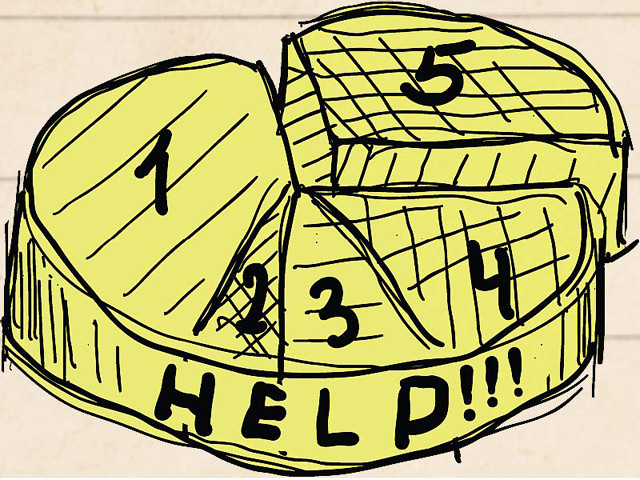Are you being ‘gunned’ down?
Gunners try to over-shadow their peers by employing a variety of means, most of them unsavoury.

Who are they?
There are different definitions for the word gunner but in essence all of them mean the same thing. The word describes a type of medical student who is very competitive and whose behaviour ranges from being unethical to being blatantly dishonest. All medical schools have at least one gunner in every class.
Gunners try to over-shadow their peers by employing a variety of means...most of them unsavoury. They may hoard study material or answer a question that has clearly been directed at someone else or make comments in front of professors that make them look smart and others unprepared. They also try to dominate small group discussion sessions and lecture their colleagues during tutorials rather than be equal participants. More malignant types often hand out erroneous study material to classmates or cheat in the exams. Some have been found ripping pages from reference books in the library so that others cannot make use of the same material.
As the years progress from pre-clinical to clinical, the gunner behaviour often escalates. In the clinical years of medical college, evaluation by Resident and Attending doctors determines a big chunk of your grade. Practically what this means is that those who are ‘seen’ studying and working usually get the best evaluation. More often than not, it’s the appearance of work that counts, not the work itself. Hence, a gunner is usually the first one to be in the wards and the last one seen leaving. He tries to get hold of and does all the procedures he or she can, even if these are being done on someone else’s patient. They will even try to get on to other’s surgeries. They study files of patients assigned to other students, look up investigations on them so that if the other student forgets something, the gunner is ready to pounce, making the other student look bad.
Personal experience
During the course of medical college, I encountered a few gunners myself. During tutorials and Problem Based Learning (PBL) sessions, there would be some who would show-off their knowledge and the material they have hoarded from different study aids and sites trying to teach their peers so as to gain popularity with the facilitator. During ward rounds in clinical years, there were some who would look over the shoulder of another student at the patient’s file and answer the attending or the resident asking a question clearly directed at the student who has been assigned that patient making him/her look ill-prepared.
Most gunners just like other medical students, suffer from insecurities that come with the territory of being in medical school. But because of the background they come from or their introverted nature or lack of self-esteem, they become isolated from their classmates and cannot connect with them. Due to this social isolation, they find solace in gathering information and try to gain a semblance of self-esteem by putting others down. If a gunner is confronted and made to feel at home in the environment, his/her behaviour can slacken. What happens in reality is that others around the gunner become very intimidated by their behaviour and start to acquire the same study habits and behaviour, creating a cycle that creates more gunners. Gunners are usually shunned and that increases their reliance on their work habits. Yes, there are some who are just malignant by nature, but most are just insecure.
Dealing with gunners
How can this problem be addressed? The gunner needs to be confronted and explained that his behaviour is disruptive. Most students do not like to be perceived as such and this may help tone down the behaviour. The other important aspect is that the gunner must be made to feel at home and connected with their peers. Invite the gunner to have a cup of tea or coffee with you or take him/her to a party. You can ask the gunner to play a cricket match or a table tennis game with you. Dr Hallowell, a psychiatry instructor at Cambridge Hospital, has collected a lot of data on how important connectedness is for physical and emotional well-being and believes that some individuals need to be sought out rather than be expected to come out on their own.
This term, gunner, is usually used very specifically when addressing medical students but this problem is present in all professional schools, even in high schools where sometimes students are seen to answer out of turn although, they are many a times dismissed for being over-enthusiastic.
A word of advice, if you think there is no gunner in your class or you have not encountered a gunner till now, it just might be that you are it!
Published in The Express Tribune, February 13th, 2011.



















COMMENTS
Comments are moderated and generally will be posted if they are on-topic and not abusive.
For more information, please see our Comments FAQ